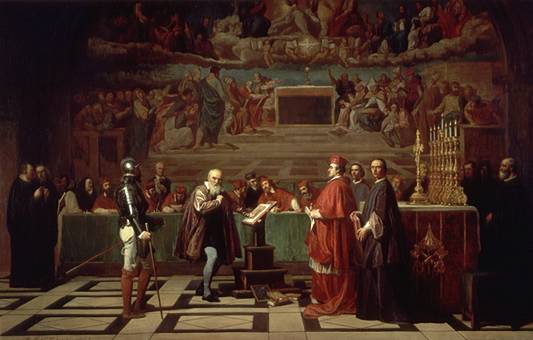Galileo Galilei was a physicist and astronomer who lived in the late sixteenth and early seventeenth centuries and is today considered by many to be the father of modern science. He was one of the earliest and most influential scientists to argue in favor of heliocentrism, the belief that the sun is at the center of the solar system, not the Earth. And on February 26, 1616, the Catholic Church demanded that he stop arguing it on pain of torture and death.
In those days, the Church believed that the Bible required a belief that the Earth is the center of the universe and that the sun orbits around the Earth instead of the other way around. So when the first telescopes were invented and astronomical observations became accurate enough to show that was not the case, astronomers started arguing that the old way of thinking was wrong. This led to astronomers like Galileo receiving visits and threats from the Inquisition.
When Galileo was brought before Church officials and told that he was being charged with heresy, the death of fellow astronomer Giordano Bruno must have been much on his mind. Bruno, a fellow scientist who also supported heliocentrism, had recently been burned at the stake for it. So Galileo publicly recanted his beliefs.
His recantation made his feelings on the subject quite clear, however. Essentially, he said that he had never been a heretic. But, as the Church commanded him to recant, he was recanting, even though his arguments in favor of heliocentrism were incredibly strong. He also added that he would never again say anything that people could get suspicious about. A truly classic “sorry/not sorry” pseudo-apology.

